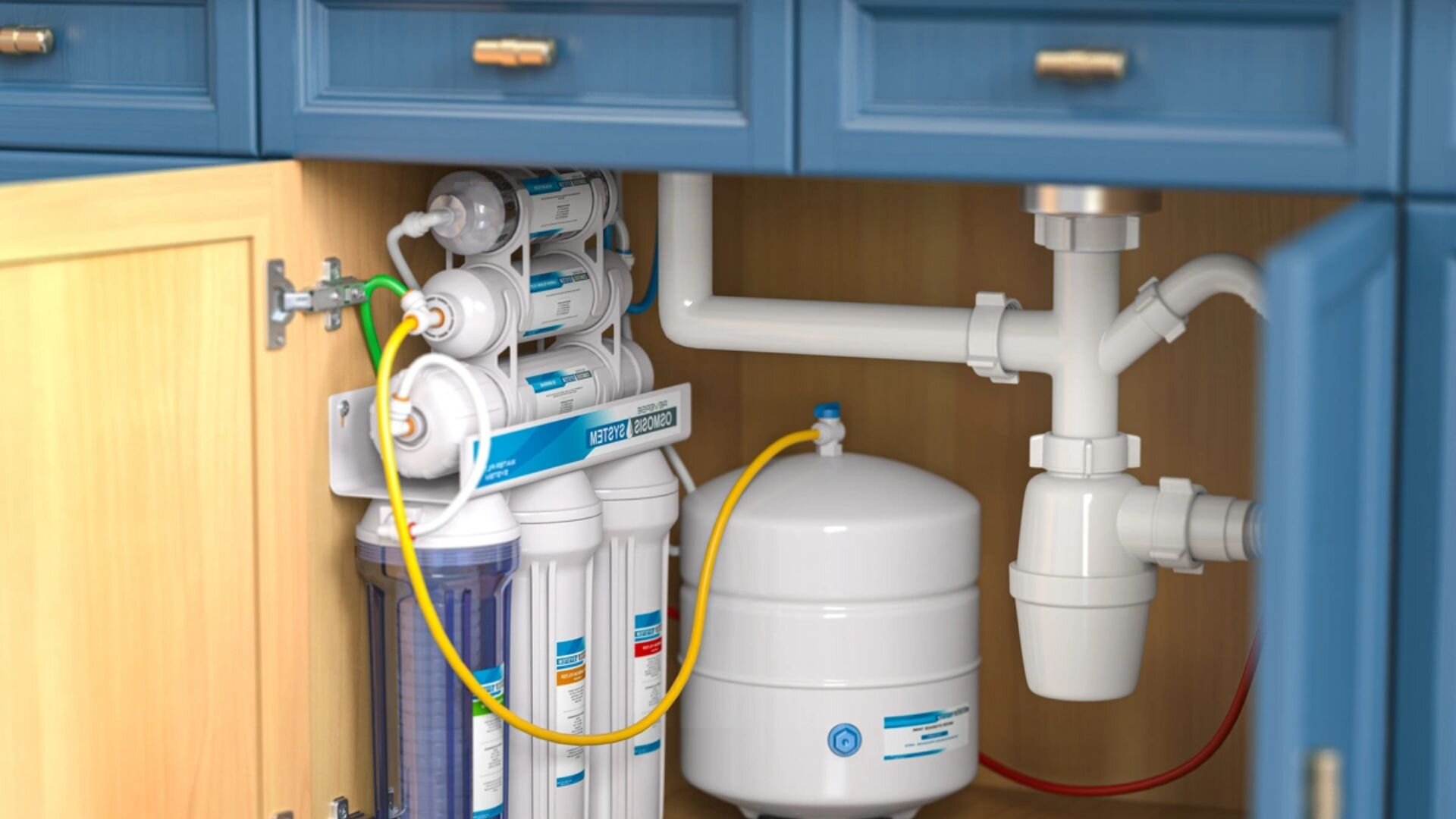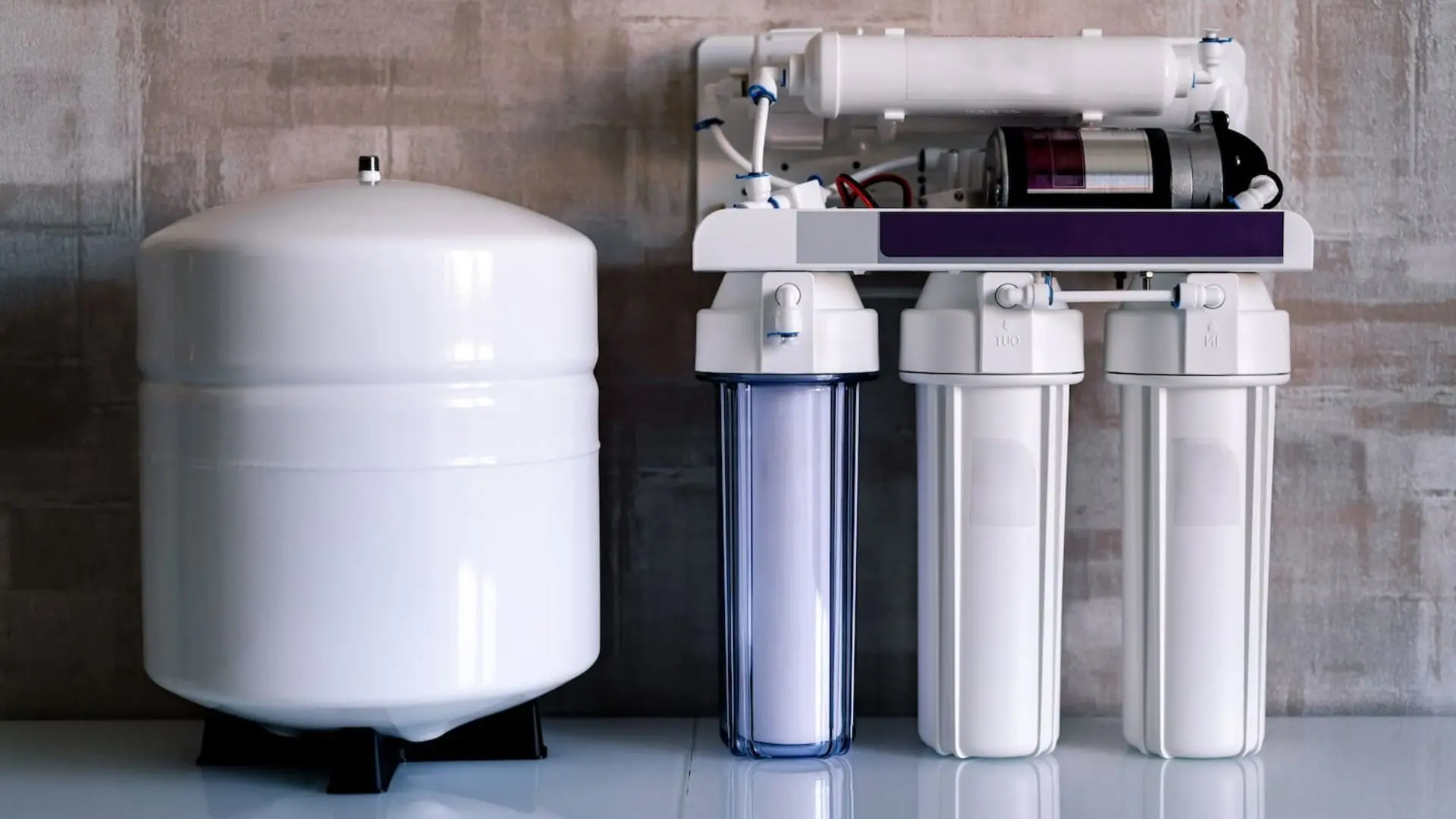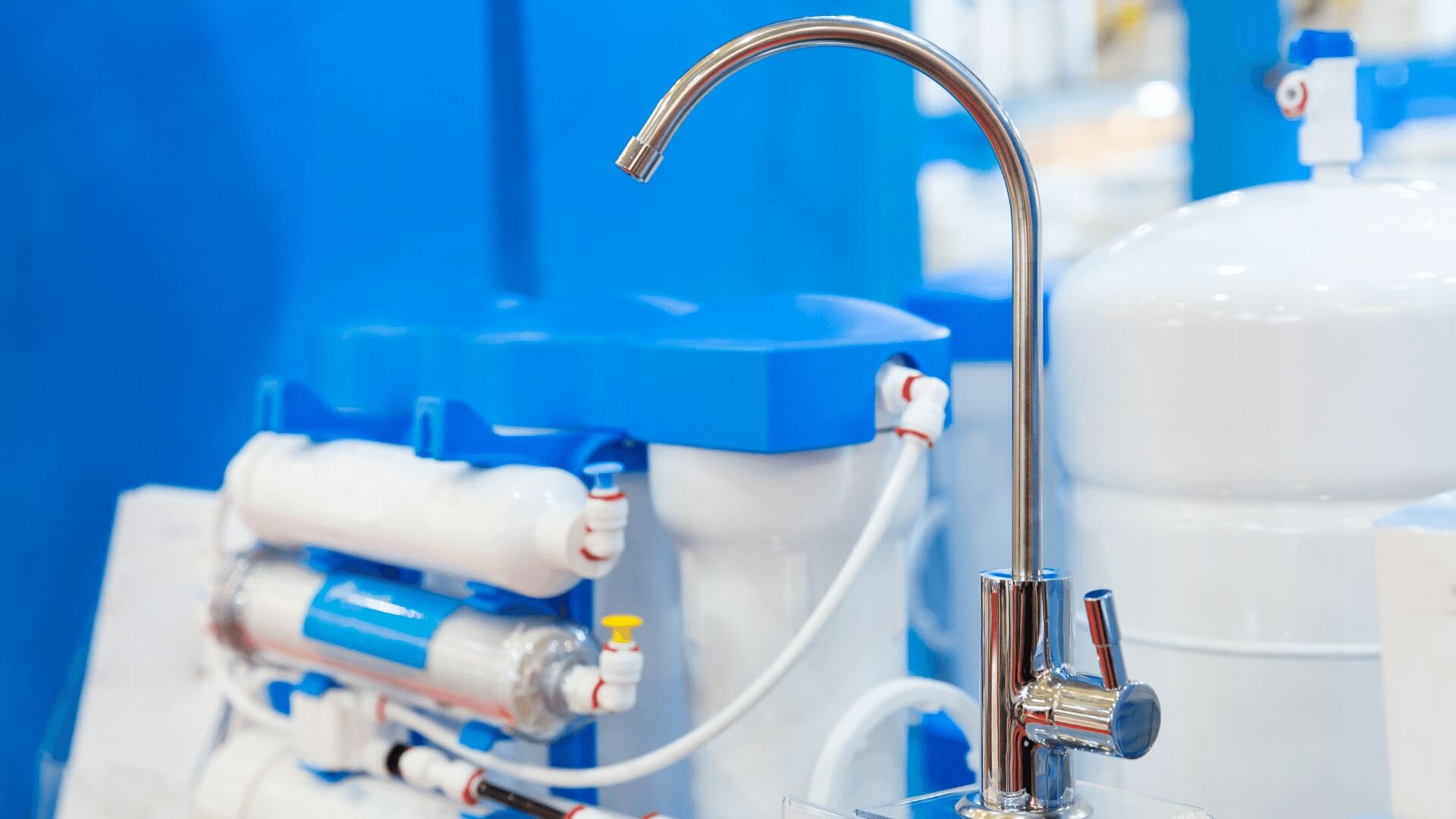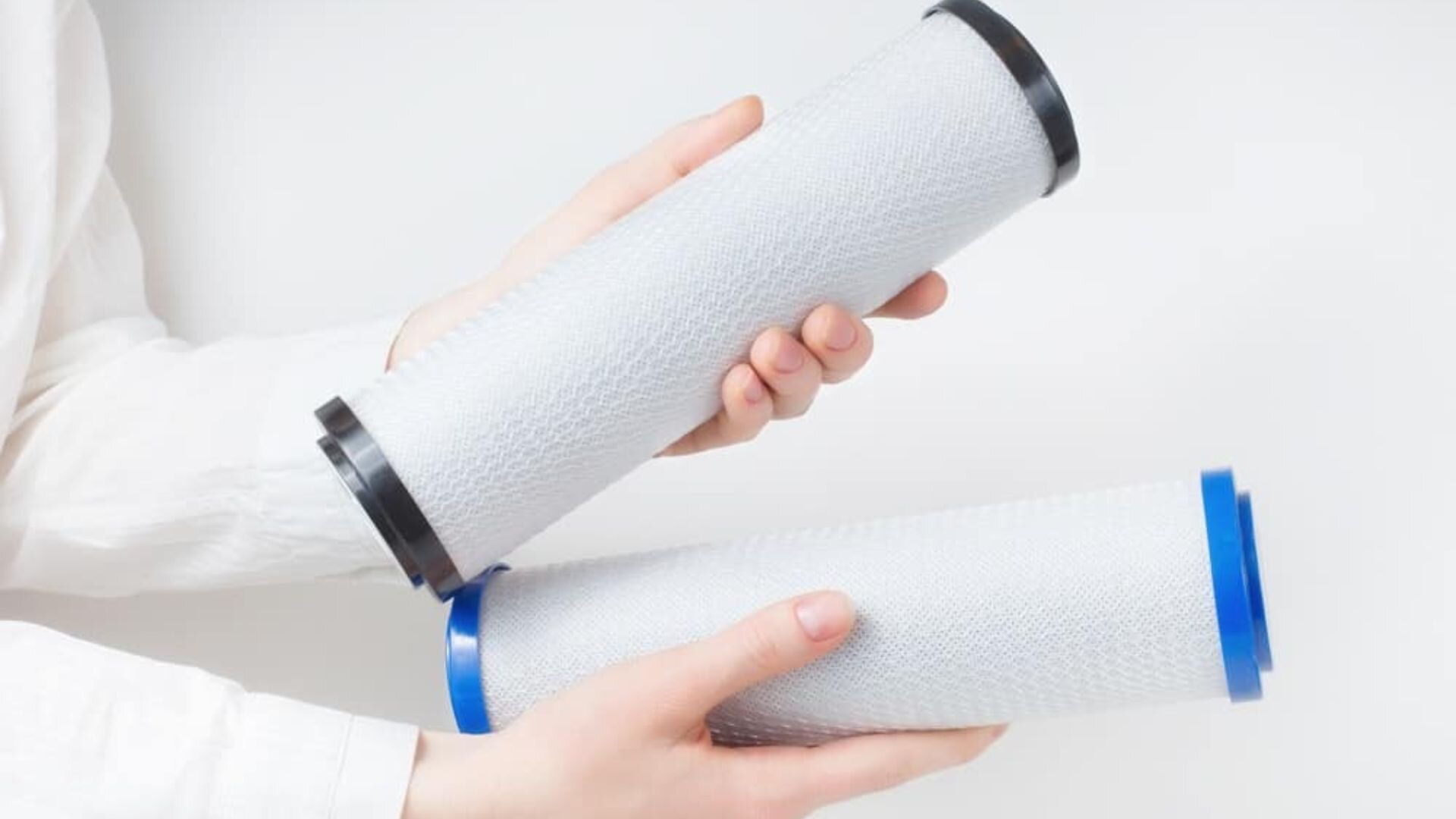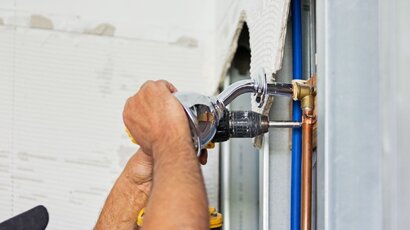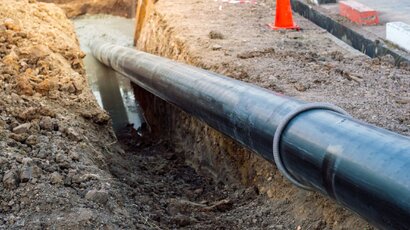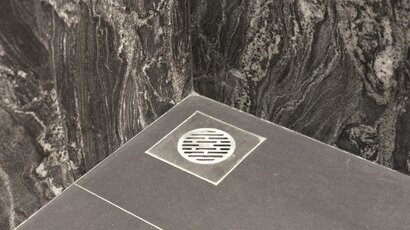![]()
Clean, contaminant-free water is essential for good health. However, impurities can build up in your home’s water supply and plumbing system over time. This is where water filter cartridges play a crucial role—they trap sediments and reduce pollutants to provide refreshed, purified drinking water from every tap.
So, how often should you replace your filter cartridges? There isn’t a definitive answer because it varies. Generally, they last between 3 months and a year, influenced by water quality, filter type, usage, and manufacturer’s advice. It’s wise to jot down the installation date, adhere to the manufacturer’s schedule, and regularly check the cartridge’s condition and water flow or taste. If you notice reduced flow or a dip in water quality, it might be time for an earlier change.
In this guide, we’ll explore the factors that impact the lifespan of water filter systems and discuss signs that it’s time for replacement. By understanding optimal replacement water filter cartridge frequency, you can enjoy clean, fresh-tasting water year-round!
What Are The Different Types Of Water Filters?
Water filter cartridges contain a specialised filtration media that removes impurities as water flows through. The most common types are activated carbon filters, which absorb chemicals, odours, colours, and tastes and are suitable for general water purification; sediment filters, which trap particles like dirt, silt, and sand and help protect appliances from abrasion and clogging; and reverse osmosis filters which push water through a semipermeable membrane to remove dissolved salts, metals, and other contaminants.
![]()
Filter cartridges fit easily onto water filtration systems and pitchers. As they’re used, the filtration media gradually fills up with impurities, reducing their effectiveness. This is why it’s vital to replace them regularly—it keeps your water tasting fresh and free of contaminants.
The cartridge is the heart of the filtration system, trapping and holding the impurities so clean water can flow through. But its filtration capacity drops over time as particulates accumulate in the media, making replacement vital.
What Impacts How Often You Should Replace Filter Cartridges?
Several key variables affect the lifespan of water filter cartridges and how frequently they require replacement:
![]()
The Water Quality
The quality of your tap water plays a big role in how long your cartridges last. If the water is heavily contaminated, the filters have to work extra hard, which means they’ll fill up and need replacing more quickly. So, for water with lots of impurities, you’ll find yourself changing cartridges more often.
What Type Of Filter You Have
The complexity of the filtration technology also matters. Basic sediment filters that trap particles last longer than more advanced carbon filters or reverse osmosis membranes that remove a broader range of contaminants. The more your filter cartridge has to remove, the faster its media becomes saturated.
Your Regular Usage Levels
Using a lot of water wears out cartridges faster. If a filter is on a tap that you use all the time, especially in a busy household, it’ll handle more litres daily and won’t last as long. In contrast, a cartridge on a seldom-used tap might last for years.
Manufacturer Guidance
Most water filtration system manufacturers provide general recommendations on cartridge replacement timeframes. This guidance is a helpful starting point for that specific filter model’s expected lifespan.
While manufacturer recommendations provide an initial benchmark, real-world conditions may require replacing cartridges more frequently to maintain clean water. Monitoring cartridge performance is critical, especially for an under-sink water filter.
Manufacturer’s Recommendations
Reputable water filter manufacturers provide recommendations on when to replace cartridges based on controlled lab testing. Typically, suggested cartridge replacement falls somewhere between:
- 3-6 months for high-use sink, shower or refrigerator models
- 6-12 months for under sink and whole house systems
- 1-2 years for pitchers and infrequently used filters
Follow the manufacturer’s instructions for your filter model. But also monitor real-world conditions that may decrease cartridge lifespan.
How Water Quality and Usage Affect Cartridge Replacement Frequency
![]()
The quality of your water source and how much water passes through the filter impact how long cartridges last before needing replacement. Very contaminated source water or high daily usage will rapidly clog and exhaust the filtration media inside the cartridge.
As particulates accumulate, the cartridge becomes saturated, and water flow decreases due to build-up slowing passage through the dense filter media. You may notice lower water pressure in taps. Cartridges also lose their contaminant removal abilities over time as sites for trapping impurities are occupied. This leads to changes in taste, smell, and water clarity.
For example, saturated sediment cartridges fail to trap as many particles, resulting in cloudiness. Any noticeable decrease in filtration performance means it’s time for a fresh cartridge. For typical municipal water sources, aim to replace cartridges every 6 to 12 months.
Effective Cartridge Maintenance and Monitoring
Proper maintenance and monitoring enable water filter cartridges to optimise their contaminant removal lifespan. Periodically inspect the exterior of cartridges for cracks or external dirt build-up, which could indicate interior clogging. Check for scale, sediment, or discolouration. Also, run hot water through the filter for several minutes at a high flow rate to backwash, dislodge, and rinse away particulates trapped in the media to extend cartridge life.
Note install dates on your cartridges and calendar the manufacturer’s recommended replacement schedule. Setting reminders ensures you swap them on time. Keep spare replacement cartridges on hand for your model as well. This allows easy swap-outs when required rather than emergency purchases.
It’s also important to periodically check for any drop off in water flow, pressure, odd tastes or odours that would indicate a saturated cartridge. You can achieve optimal lifespans from your water filter cartridges by adequately maintaining the filtration system, monitoring cartridge condition closely, keeping diligent replacement records, and stocking spares.
Keep Your Water Flowing Clean with Proactive Cartridge Replacements
The key to enjoying optimised water filtration is diligently replacing spent filter cartridges. While manufacturer suggestions offer a general timeframe, be sure also to monitor real-world factors like water quality and usage levels that may decrease lifespan. Periodically check for changes in flow rate, taste, clarity, and odour, which signal a depleted cartridge. With proactive monitoring and maintenance, you can keep your filtered water flowing clean, contaminant-free, and great-tasting all year.
For professional installation, maintenance, or troubleshooting of any water filtration systems, the licensed plumbers at WP Plumbing in Melbourne are here to help. We are water filtration experts who can optimise your home’s system for maximum contaminant removal and refreshingly clean water from every tap. Contact WP Plumbing at (03) 9122 8652 to discuss your water filtration needs.
Water Filter Cartridge FAQs
How often should refrigerator water filters be replaced?
Refrigerator water filters usually need replacing about every six months. With frequent use, they handle a lot of water, leading to quicker build-up of contaminants. This means the filtration media gets exhausted more swiftly.
Be sure to monitor any changes in taste, odour, or flow rate from the dispenser, indicating a depleted filter needing replacement ahead of the 6-month mark. Replacing these filters every six months ensures optimal contaminant removal and great-tasting chilled water and ice.
Do all water pitcher filters need the same replacement frequency?
Not necessarily. While many pitchers have standard carbon block cartridges, some utilise denser filtration media to last longer between replacements. The type of media, amount of media, and filter cartridge construction can vary between pitcher brands and models. Always check the manufacturer’s recommendations for replacement frequency.
Some may advise replacing every two months, while more heavy-duty pitchers only need new cartridges every 4-6 months. Monitoring changes in filtered water taste and flow rate can help you determine whether to replace a pitcher’s cartridge sooner if necessary.
What decreases the lifespan of my reverse osmosis filter membrane?
High sediment levels in the source water significantly decrease the lifespan of reverse osmosis membrane filters. Particulates force the membrane to work much harder to reject contaminants, exhausting the membrane more quickly.
Pre-filtration with sediment cartridges is recommended to remove particulates and extend the RO membrane’s lifespan. For systems treating water from contaminated sources with high sediment content, annual membrane replacement may be needed.
How do I remember when to replace filter cartridges?
The easiest way to keep track is to jot down the installation date of your new filter cartridge and mark the recommended replacement time on your calendar. Setting a reminder on your phone based on the install date helps you stay on top of things, ensuring you don’t miss a replacement.
Keeping detailed logs of install and replacement dates for all your filters ensures you can swap cartridges out on time and continue enjoying optimised filtration.

